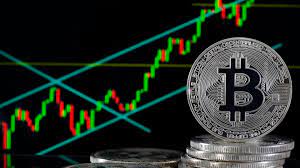In today’s interconnected economy, developments in one part of the world can have immediate effects on global financial markets. Investors closely monitor international stock market news today to adapt their strategies, manage risk, and seize opportunities. Understanding these influences is crucial for making informed investment decisions.
Key Global Events Moving Markets
Global stock markets are highly sensitive to political, economic, and social developments. News about central bank policies, trade agreements, geopolitical tensions, or natural disasters can quickly shift market sentiment. For example, interest rate decisions by major economies often influence capital flows, affecting not only domestic markets but also emerging economies. Similarly, significant political events such as elections or policy reforms can cause volatility in both local and international exchanges.
Economic indicators also play a major role. Reports on GDP growth, unemployment rates, consumer spending, and inflation provide investors with clues about the direction of the economy. Positive data can boost investor confidence, while weaker-than-expected results may trigger caution or selling pressure.
Impact of Global Market Trends on Investor Behavior
When major indices such as the S&P 500, FTSE 100, Nikkei 225, or Shanghai Composite show strong movements, they often influence investor sentiment worldwide. A surge in global markets may lead to a “risk-on” environment, where investors are more willing to invest in equities and higher-yield assets. Conversely, a decline in these indices may prompt a “risk-off” shift toward safer assets such as gold, bonds, or stable currencies.
Additionally, trends in commodities, currencies, and cryptocurrencies are closely watched. Rising oil prices, for instance, can boost energy sector stocks but may also increase costs for industries reliant on fuel, affecting profitability. Currency fluctuations can impact multinational companies’ earnings, influencing investor decisions on which regions or sectors to prioritize.
Adapting Strategies to Changing Market Conditions
To navigate global market news effectively, investors often diversify their portfolios across different asset classes and regions. This approach helps reduce the impact of localized downturns. Many also employ hedging strategies, such as using derivatives, to protect against adverse market moves.
Staying updated on global economic calendars, earnings announcements, and policy updates allows investors to adjust positions before major events trigger volatility. Long-term investors may choose to ride out short-term fluctuations, while active traders may take advantage of price swings to capture profits.
The Role of Technology in Monitoring Markets
Advancements in technology have made it easier for investors to track global market developments in real time. Financial news platforms, mobile apps, and trading software provide instant updates, market analysis, and trend forecasts. This accessibility allows both retail and institutional investors to react swiftly to breaking news, whether it is a policy announcement from the Federal Reserve or a sudden shift in commodity prices.
Conclusion
Global stock market news serves as both a guide and a warning for investors. The ability to interpret and respond to developments—ranging from economic reports to geopolitical events—can make the difference between capitalizing on opportunities and suffering losses. By staying informed, maintaining diversified portfolios, and adapting strategies to changing conditions, investors can better navigate the complexities of today’s interconnected markets. In a world where news travels fast and impacts are immediate, vigilance and adaptability remain the keys to successful investing.





